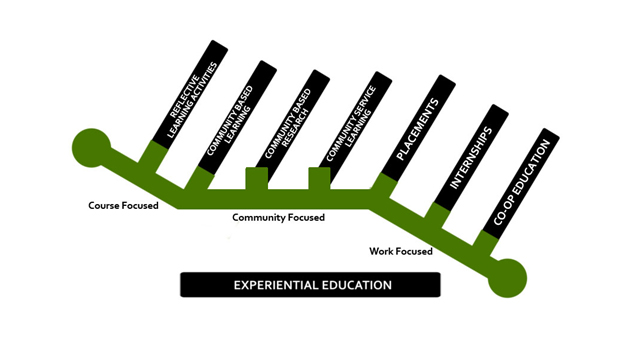Experiential Education (EE) is a pedagogical approach that blends theory and coursework with concrete experience. Experiential education allows students to acquire concrete experience and to reflect upon this experience such that they deepen their understanding of the theory. Experiential education is also a broad term that encompasses a continuum of learning activities or strategies, which take place either within a classroom setting or within the community.
As indicated in a number of documents such as Faculty of Health EE discussion paper (2011) and the White Paper Companion (2010) and elsewhere there are compelling reasons of the benefits of EE to student learning. They include:
1) Deeper understanding of concepts covered in class
2) Events in class are more memorable
3) More engaged student learning
Why Do Experiential Education?
Students are more likely to achieve deeper learning of course material if they are afforded opportunities to apply what they learn to a concrete experience. Experiential learning does not occur in a vacuum, and many stakeholders (such as students, course directors, community partners and the institution) and many activities are involved in the creation of a meaningful learning experience. A successful experiential education project involves not just providing the student with deeper learning, but yielding gains for both the course director and community partners (if applicable). Benefits for each of the parties are essential ingredients for building sustainability, and reminding us of the value of both education and community-university collaboration.


